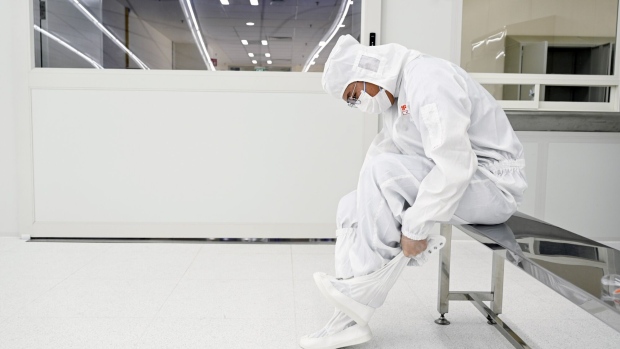Sep 13, 2023
Singapore Seeks to Better Compete in Specialty Chip Market
, Bloomberg News

(Bloomberg) -- Singapore can compete to manufacture specialty chips for cars and phones, without wading into the subsidies race that other countries engage in, Deputy Prime Minister Lawrence Wong said.
“All these big boys are paying so much subsidies to attract high end semiconductor production in their respective homes and we cannot afford to outbid, we cannot afford to get into a subsidies arms race, but we do whatever we can to provide a conducive environment.” Wong said at the Milken Institute Asia Summit in Singapore on Wednesday. The city-state “can be competitive in specialty chips,” he added.
Singapore is already home to several semiconductor plants, including a joint venture between Taiwan Semiconductor Manufacturing Co. and NXP Semiconductors NV, that focus on using older technologies for chips required by a wide range of electronics and products. These chips are still essential as they’re critical components for everything from smartphones and electric vehicles to military hardware.
The US, EU and Japan are all offering billions in incentives in the hope of luring global chipmakers including TSMC to build advanced plants on their turfs, yet few countries have adequate infrastructure and supply chain to support the operations of fabs that can produce cutting-edge semiconductors powering emerging technologies including artificial intelligence applications.
Expanding the semiconductor value chain weaves into Singapore’s goal to transform the economy, enable more digital innovations and be more equipped in the face of slowing growth, elevated living costs and slumping exports.
At the same time, Wong who also serves as finance minister, cautioned against foreign money flowing into the city-state’s property market and making housing unaffordable for Singaporeans.
“We want the wealthy who are here to contribute to society. Play their part, pay their dues,” he said. “Of course another way they can contribute is through taxes. We always continually review our tax system. Everyone has to do their part in nation building, everyone pays tax but the rich pay more.”
In 2022, Singapore attracted a record S$22.5 billion (about $16.5 billion) in fixed-asset investment commitments, thanks to what its Economic Development Board described as an “unprecedented semiconductor super-cycle.”
The board sees the city-state continuing to attract mature nodes and wafer fabs, in addition to design-related chips jobs that are growing steadily, although it might not repeat the 2022 performance in terms of investments.
--With assistance from Aradhana Aravindan and Natalie Choy.
©2023 Bloomberg L.P.





